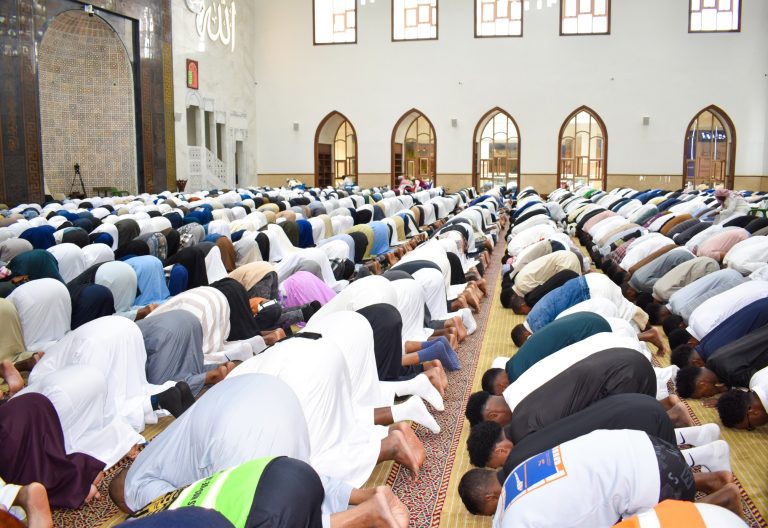Eid-Ul-Fitr sparks come back as traders recover from Ramadan slowdown

The end of the holy month of Ramadan marks a significant shift in economic activities, particularly benefiting businesses that experienced a slowdown during the fasting period.
As Muslim faithful return to their normal routines, a resurgence in demand is expected, leading to a positive economic rebound for targeted businesses. However, while this transition presents opportunities for growth, it also highlights some of the temporary setbacks businesses face during the fasting period.
Most businesses say they recorded lower sales due to reduced consumer demand; they told Business Hub. For retailers like Joseph Kivuyo from Nasra Estate, the period was marked by sluggish sales. While he acknowledges the economic benefits of Ramadan’s conclusion, he notes that the transition is gradual rather than immediate.
Similarly, Sophy Msimbi, a retailer in Donholm, Nairobi, had to adjust her business model by focusing on high-demand products like date palms, cheese, fresh milk, and eggs to maintain revenue flow. This kind of product diversification helped some businesses stay afloat despite the overall slowdown.
Mixed reactions
“I have a mixed customers base, and during the month, yes all of them were still coming, including the ones from my own religion, but the demand for products was not really up, because I would say I was serving one segment mostly, in order to balance my sales, I had to go heavy on things such as the date palm (Tende) among other highly proteinious products such as cheese, fresh milk and eggs which are usually in demand during this month,” she explained.
Now that they have broken the fast, businesses are set to face a rebound as a result of product diversification too.
The consumption patterns of the Muslim community shift significantly during Ramadan. Many faithfuls abstain from activities considered “Haram,” including clubbing, drinking, and even spending too much time on social media.
Consequently, businesses in the hospitality and entertainment sectors often experience a dip in revenue from revellers who have to adhere to the calling. Restaurants that rely on Muslim customers noticed a decline in sales, even if they do not serve alcohol.
Maryanne Njeri, a general manager at a Swahili dish restaurant in Nairobi, says she observed a slight drop in business during Ramadan but remained resilient due to her diverse customer base.
“Our specialty is Swahili dishes, but we also do other cuisine, there was not really much of a difference from our end because we are serving a huge customer base, but yes there was a small difference compared to the previous month,” she said.
Short-stay accommodations, commonly known as Airbnbs, also witnessed reduced demand. Many Muslim individuals prioritised spending time with their families rather than engaging in social activities that might necessitate renting accommodations.
Temporary cash flow hitches
The temporary cash flow reduction affected businesses that depend on consistent bookings.
A Nairobi-based hotel employee who spoke on condition of anonymity noted that while demand for bookings declined slightly, they anticipate a return to normalcy now that Ramadan has ended. “I don’t want to sound biased, but hotel bookings reduced a little bit during the period, due to reduced demand, then if you were keen enough there was a slightly reduced cash flow even though it is still low, and you find that most the demand of the spaces by both sets of clientele was reduced although not that much.”
Fitness centres, particularly those in areas with large Muslim populations, also reported a downturn. For instance, Johannes Hongo, a fitness trainer at Marine Gym in Komarock Estate, stated that most of his Muslim clients took a break from training due to the physical demands of fasting. He anticipates a surge in attendance as clients resume their fitness routines, creating an opportunity for increased revenue in the coming weeks.
Despite these temporary setbacks, Ramadan also fosters economic activity in other sectors. The preparation for Eid-ul-Fitr sees a spike in purchases as families stock up on food and buy new clothes to celebrate.
Adapting to cyclical shifts
According to Lauren Asiko, who previously worked as a nanny in Lebanon, households in the Middle East and Africa tend to buy food in large quantities to accommodate extended family gatherings. This period also encourages the exchange of gifts, further boosting retail sales.
The ability of businesses to adapt to these cyclical shifts is key to sustaining profitability. Many enterprises have grown accustomed to the seasonal changes and adjust their strategies accordingly. The slowdown during Ramadan may be a challenge for some, but for those who innovate, the post-Ramadan period offers a chance to regain lost revenue.
The short Eid-ul-Fitr break provides an economic boost as businesses resume normal operations, it also underscores the need for business owners to develop flexible models that cater to shifting consumer behaviors. By embracing adaptability and creativity, businesses can turn temporary setbacks into long-term opportunities, ensuring a cushion during periods of slow business.














